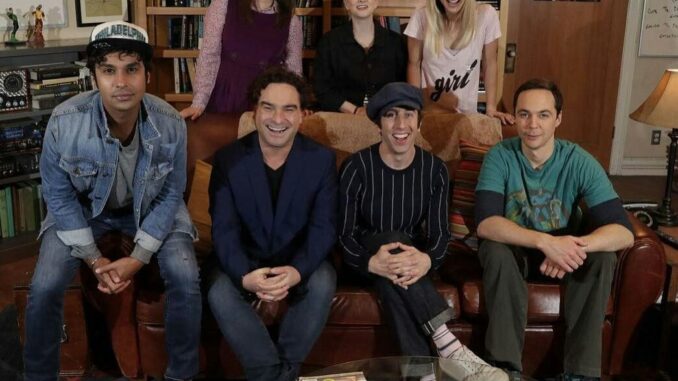
It’s hard to believe that The Big Bang Theory ended in 2019, considering the cult following the series has and three TBBT spinoffs. Fans discuss the characters and their storylines as if the show were still running today. However, if TBBT had premiered today, it likely wouldn’t have lasted for 12 seasons like it eventually did.
Today, geek culture is everywhere in entertainment, making it far more familiar than it was 18 years ago. Scientific material and techie fandoms are no longer niche; they’re the norm. Outside the content, the characters also had some problematic storylines in the early seasons of The Big Bang Theory that wouldn’t have been greenlit in the writers’ room today.
The Big Bang Theory Debuted At A Time That Nerd Pop Culture Wasn’t Yet Mainstream
When The Big Bang Theory came out, the concept of nerd culture was new and original. Instead of the typical tropes of someone being bullied for reading comics, TBBT had a group of friends whose lives revolved around it. The fandoms and lore consumed the characters in a way that was never properly shown before.
Comics were joined by a love for the sciences, experiments, and Marvel vs. DC fandoms. Conversations were intelligent and thought-provoking, and were rarely seen on other sitcoms. Many viewers were introduced to that part of entertainment for the first time while watching TBBT. Learning about string theory and how Marie Curie discovered radium were all new concepts in comedy.
Others were just happy to see their interests represented in a mainstream way. What was once seen as “uncool” was now cool in a big way. Sheldon, Leonard, Howard, and Raj made it fun to learn geeky things on The Big Bang Theory.
Now, however, nerd culture is pop culture. Formerly niche hobbies and passions are abundant in today’s media atmosphere. Fictional characters and superheroes have endless movies and shows at fans’ disposal, and at-home science experiments can be found quickly online.

Considering this, it’s hard to believe that The Big Bang Theory would have become the huge juggernaut it did if it were to come out now. Nerdy and geeky pursuits are no longer fresh or cool; they’re the norm. If the series premiered today, the content would be too familiar and no longer new.
That’s not to say The Big Bang Theory wouldn’t still be a successful show, but the very thing that put it on the map and made it a cultural touchstone back in 2007 just wouldn’t be the same today. Further, it simply wouldn’t be able to depict geek culture in the way that it did when it first came out.
TBBT’s Portrayal Of Nerds Often Leaned Into Problematic Stereotypes That Wouldn’t Fly In 2025
As a sitcom, The Big Bang Theory often revolved around generalized stereotypes for a cheap laugh. And while the humor was part of the show’s charm, it’s also what would get the series canceled in 2025.
While some self-proclaimed nerds loved seeing their interests and habits on camera, others were offended by the generalized arrogance. Overt misogyny and sexism were overshadowed because they were “harmless nerds.”
Howard Wolowitz was one problematic character who came off as perverted and creepy, but it was covered by the guise of innocence. From spying on women to making inappropriate advances, his behavior was brushed off because he wasn’t the typical threat.
To TBBT’s credit, the series recognized problematic character arcs and improved them in time, making the group less controversial and stereotypical. Nonetheless, storylines like hidden cameras in Penny’s apartment and a fixation on sex are things that would not work in today’s sitcoms.
Over time, audiences and networks shift gears, and things that were once deemed appropriate or silly on TV are no longer. Instead of trying to reinvent similar sitcoms to repeat the show’s success, it’s best to leave it in the vault because 2025 is a different place for geek culture than it once was.
